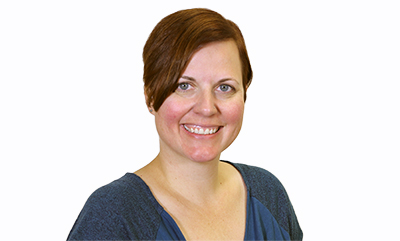Professor Wins Early Career Investigator Award.
 Kimberly Nelson, assistant professor of community health sciences, has been awarded the 2020 Early Career Investigator Award by the Society of Behavioral Medicine (SBM). The award is one of 10 annual achievement awards presented by the leading behavioral and biomedicine organization to recognize “outstanding achievement and contribution to the field of medicine.”
Kimberly Nelson, assistant professor of community health sciences, has been awarded the 2020 Early Career Investigator Award by the Society of Behavioral Medicine (SBM). The award is one of 10 annual achievement awards presented by the leading behavioral and biomedicine organization to recognize “outstanding achievement and contribution to the field of medicine.”
Nelson, who holds degrees in public health and clinical psychology, has developed an extensive portfolio of individual-level behavioral research that generates community and population-level implications. Her work focuses on the psychological and structural factors associated with sexual decision-making among sexual and racial/ethnic minority adolescents and adults, particularly around HIV transmission and acquisition.
Nelson says her PhD in clinical psychology, which she received at the University of Washington, has complemented her MPH in epidemiology and broader work in adolescent behavioral health by informing how individual-level interventions can be scaled to a population level.
“There is a burgeoning portion of clinical psychology that has focused on behavioral health,” says Nelson. “My work involves thinking about how we can change individual behaviors in a way that will affect populations, and also how we can change structural factors that will impact individual behavior.”
Since joining SPH in September 2019, Nelson has undertaken a number of research projects around the health behaviors of sexual and racial/ethnic minority youths. Most recently, with an early-career grant by the National Institutes of Health, she launched an online sex education pilot intervention for 154 gay, bisexual, and questioning boys ages 14 to 17. The pilot, which was about to launch right before the COVID-19 pandemic occurred, was originally designed to focus on issues such as safer sex, porn literacy, and healthy relationships. Nelson quickly adapted the study to also assess how the pandemic has impacted the teens’ sexual activity and, more broadly, their mental and emotional states as they endure school closures and stay-at-home orders.
“What we’ve seen is that COVID-19 is really disrupting these kids’ lives,” says Nelson. “They’re experiencing a lot of anxiety, depression, and stress.”
“Then there is the added stress for youth who are not out to their families, and are now stuck at home with them,” she says. “That’s a particularly hard spot to be in because they don’t have access to the social supports around their developing sexual identity in the same way anymore, and there is the additional fear of their family finding out about their identity and not being supportive.”
Earlier this year, Nelson launched a $2.7 million, NIH-funded study in collaboration with researchers from Columbia Law School, the Center for Innovative Public Health Research, Tufts University Department of Community Health, Harvard T.F. Chan School of Public Health, Brown University School of Public Health, and a nationwide youth advisory board. As one part of the project, the team will survey adolescents to examine how US states’ confidentiality laws for minors relate to youths’ use of HIV/STI testing, treatment, and prevention services.
“Being able to issue a cross-sectional survey with adolescents from across the country will also give up an opportunity to collect more data on how COVID is impacting these youths and their service uptake,” Nelson says.
One aspect that Nelson says she appreciates about this project, and her broader research, is the collaborative nature of her work. She and a team of fellow faculty members from Community Health Sciences, as well as researchers from the School of Medicine and the School of Social Work, just formed a pre-ARC (Affinity Research Collaborative) group through the Boston University program that enables research teams to explore themes through meetings and workshops before applying for funding for a project.
“Good collaborators, with diverse opinions and backgrounds, make research so much better,” says Nelson. “One of the things I’ve been incredibly grateful for is how much collaboration is encouraged and supported at BU. It’s great that it is such a part of the culture.” She says her pre-ARC group hopes to be able to parlay the research opportunity into the future development of a center that focuses on adolescent health and health equity.
An active member of SBM, Nelson serves as the chair of the organization’s HIV and Sexual Health special interest group (SIG). She says the SIG serves as a unified effort within SBM to encourage awareness and research on HIV and sexual gender minority health.
“We’re hoping to promote that these areas of research and practice are very important to people’s health and wellbeing, and that sexual and gender minority health issues should not be sidelined,” says Nelson. “They’re as important as any other health disparity or health equity issue.”
As she completes her ninth month at the school, Nelson says “I am grateful every day that I’m working at SPH.
“Everyone is so kind, thoughtful, and supportive, and to be immersed in that environment and ethos is empowering,” she says. “It makes my work better and fosters a great sense of community.”
Comments & Discussion
Boston University moderates comments to facilitate an informed, substantive, civil conversation. Abusive, profane, self-promotional, misleading, incoherent or off-topic comments will be rejected. Moderators are staffed during regular business hours (EST) and can only accept comments written in English. Statistics or facts must include a citation or a link to the citation.